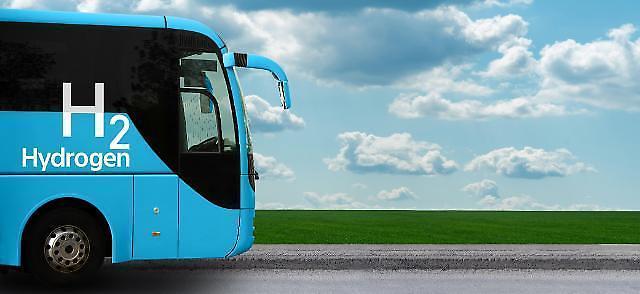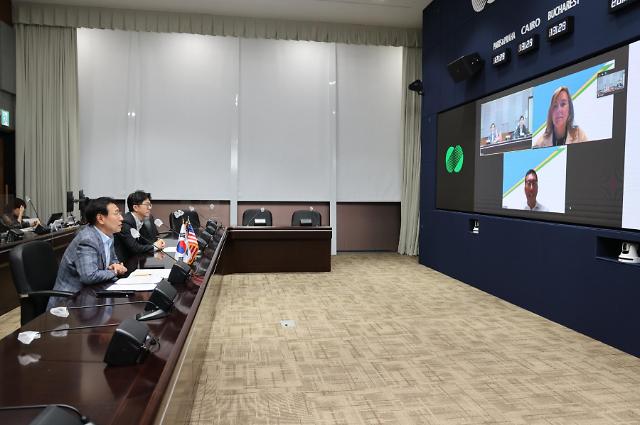
Green hydrogen is a type of hydrogen fuel that does not use any fossil fuel during its manufacturing process. It uses electrolysis to split water and release only hydrogen and oxygen. Jeju, which has relatively long intervals between bus schedules compared to other cities, has been used as a testbed for green vehicles such as hydrogen and electric cars. Travelers frequently rent electric vehicles (EVs) when touring the city. As of May 2023, some 35,00 EV chargers were installed on the island.
Through a state project, Jeju City has worked with private companies including Doosan Enerbility, a key player in South Korea's power industry, to establish green hydrogen infrastructure since 2020. The city constructed a 3.3 megawatt-class plant, which started production in August 2023. The factory can produce about 200 kilograms (440.9 pounds) of green hydrogen daily.
Jeju City said in a statement on October 23 that its green hydrogen-based bus began commercial operation on a bus route that connects Hamdeok to Halla Arboretum. Green hydrogen is currently being produced using electricity from solar and wind power. Without disclosing the exact date, the city said it aims to run nine buses on the 29-km-long route.
South Korea is trying to achieve net-zero carbon dioxide emissions by 2050. Seoul has stepped up the adoption of hydrogen and electric buses as part of its eco-friendly project that aims to operate some 1,000 hydrogen buses and build 11 hydrogen fueling stations by 2025. In January 2021, the capital city also adopted 27 electric buses to replace diesel buses.
Copyright ⓒ Aju Press All rights reserved.





View more comments